Words of Wisdom from Top Educators
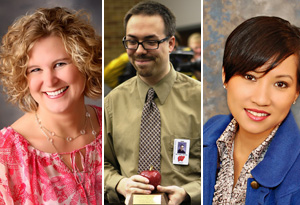
Our nation is full of dedicated, talented and generous teachers who help our children learn much more than what's in their textbooks. They offer guidance, build confidence, ignite passions and inspire greatness—all on top of ensuring that each and every student gets a top-notch education.
The Council of Chief State School Officers recognizes the standout educators across the country with their Teacher of the Year awards. Several of the teachers who were honored in 2010 are stepping forward to share what they've learned from their mentors, their students and themselves.
National Teacher of the Year: Sarah Wessling
"Motivating our students means knowing our students."
Arizona Teacher of the Year: Joy Weiss
"Being passionate about everything you're teaching and being real with your students are the top two motivations that our students need."
Massachusetts Teacher of the Year: Jae Goodwin
"Learning in the 21st century must be expanded beyond the classroom."
Nebraska Teacher of the Year: Michael Fryda
"Students respect teachers that challenge the 'easy way out' and expect nothing less than the best."
Florida Teacher of the Year: Megan Allen
"School is the rock in many of our students' lives—it is their stability, their home away from home, their safe place."
Alabama Teacher of the Year: Yung Kincer
"Too many students think that going to school is just a way to get a job. It's about much more than that."
Washington, D.C., Teacher of the Year: Stephanie Day
"When we do our jobs, our kids have no limits to their potential."
Words of wisdom from 7 more incredible teachers
The Council of Chief State School Officers recognizes the standout educators across the country with their Teacher of the Year awards. Several of the teachers who were honored in 2010 are stepping forward to share what they've learned from their mentors, their students and themselves.
National Teacher of the Year: Sarah Wessling
"Motivating our students means knowing our students."
Arizona Teacher of the Year: Joy Weiss
"Being passionate about everything you're teaching and being real with your students are the top two motivations that our students need."
Massachusetts Teacher of the Year: Jae Goodwin
"Learning in the 21st century must be expanded beyond the classroom."
Nebraska Teacher of the Year: Michael Fryda
"Students respect teachers that challenge the 'easy way out' and expect nothing less than the best."
Florida Teacher of the Year: Megan Allen
"School is the rock in many of our students' lives—it is their stability, their home away from home, their safe place."
Alabama Teacher of the Year: Yung Kincer
"Too many students think that going to school is just a way to get a job. It's about much more than that."
Washington, D.C., Teacher of the Year: Stephanie Day
"When we do our jobs, our kids have no limits to their potential."
Words of wisdom from 7 more incredible teachers

Photo: Deena Byrd/Portraits by Deena and Co.
What does it truly mean to motivate students? National Teacher of the Year Sarah Wessling believes that motivating our students means knowing our students. "It means seeing what they can't see in themselves and offering a lighted path," she says. "It's in their passions and questions that they will find purpose."
To help promote this idea, Sarah's classroom is set up a little differently than the traditional model. "If you walked into my classroom, the first thing you would notice is that my desk is in the back of the room," she says. "This is an outward expression of an inward philosophy that learning must be learner-centered."
Like other teachers who received this honor, Sarah is committed to "flattening the hierarchies of the classroom in a way that puts teacher beside student, learner beside learner." This allows teachers to put themselves in parallel experiences and feel the same excitement, frustration and euphoria felt by each of their students.
But Sarah isn't just a teacher—she's also a parent of three young children and knows what it means to trust that a teacher sees your child as an individual. "The greatest power of parents rests in the questions they ask teachers," she says. For example, instead of asking how your child compares to his classmates or what grade he received, Sarah suggests asking, "How does my child learn?"
"Imagine the different kind of conversation that one little question would incite," she says. Imagine, indeed.
To help promote this idea, Sarah's classroom is set up a little differently than the traditional model. "If you walked into my classroom, the first thing you would notice is that my desk is in the back of the room," she says. "This is an outward expression of an inward philosophy that learning must be learner-centered."
Like other teachers who received this honor, Sarah is committed to "flattening the hierarchies of the classroom in a way that puts teacher beside student, learner beside learner." This allows teachers to put themselves in parallel experiences and feel the same excitement, frustration and euphoria felt by each of their students.
But Sarah isn't just a teacher—she's also a parent of three young children and knows what it means to trust that a teacher sees your child as an individual. "The greatest power of parents rests in the questions they ask teachers," she says. For example, instead of asking how your child compares to his classmates or what grade he received, Sarah suggests asking, "How does my child learn?"
"Imagine the different kind of conversation that one little question would incite," she says. Imagine, indeed.

Photo: Eric Weiss
Like Sarah Wessling, Joy Weiss understands the sheer power and importance of motivating her students. "Being passionate about everything you're teaching and being real with your students are the top two motivations that our students need," she says.
As such, Joy says that she has never stopped learning and growing herself, and she shares that love and passion with her students. This means that you won't find Joy simple lecturing in front of a classroom. Instead, she creates an atmosphere of cooperation, creativity and community.
"I encourage them to have fun while learning and learn not because the teacher said so, but because of the doors that open up for them," she says. "I firmly believe that all children can learn and come to us with a knowledge base deeply personal to them. We must teach them meaningful content so they are ready, prepared and able to meet the demands of our 21st century."
As such, Joy says that she has never stopped learning and growing herself, and she shares that love and passion with her students. This means that you won't find Joy simple lecturing in front of a classroom. Instead, she creates an atmosphere of cooperation, creativity and community.
"I encourage them to have fun while learning and learn not because the teacher said so, but because of the doors that open up for them," she says. "I firmly believe that all children can learn and come to us with a knowledge base deeply personal to them. We must teach them meaningful content so they are ready, prepared and able to meet the demands of our 21st century."
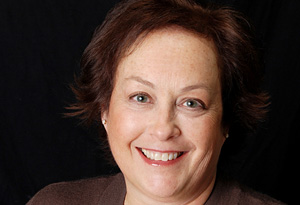
Photo: Portrait Simple
As a teacher in the 21st century, Jae Goodwin is a firm believer in the fact that learning can no longer be passive.
"Gone are the days where learning happens while students are seated in desks in rows," she says. "Learning in the 21st century must be expanded beyond the classroom: Visual learners can watch videos and see pictures with just one keystroke, auditory learners can access podcasts, kinesthetic learners can be up at an interactive whiteboard or creating a movie."
Jae also believes that incorporating these types of innovations in the classroom can help transform the learning and teaching in our entire nation. "To be successful with the digital citizens of today, we must meet them where they are, we must tune in to the world they live in," she says. She also emphasizes the importance of creating a community in her classroom.
"My students know that everyone in our class is a valuable member with no exceptions," she says. "Our classroom is known as Community 27. This is purposeful; we are not just a room but a community of learners."
"Gone are the days where learning happens while students are seated in desks in rows," she says. "Learning in the 21st century must be expanded beyond the classroom: Visual learners can watch videos and see pictures with just one keystroke, auditory learners can access podcasts, kinesthetic learners can be up at an interactive whiteboard or creating a movie."
Jae also believes that incorporating these types of innovations in the classroom can help transform the learning and teaching in our entire nation. "To be successful with the digital citizens of today, we must meet them where they are, we must tune in to the world they live in," she says. She also emphasizes the importance of creating a community in her classroom.
"My students know that everyone in our class is a valuable member with no exceptions," she says. "Our classroom is known as Community 27. This is purposeful; we are not just a room but a community of learners."

Michael Fryda entered teaching for a challenge. "It challenges me intellectually, emotionally and socially," he says. "I'm excited that I have chosen a profession in which I am not 'finished' with my own education."
Likewise, Michael believes in challenging his own students and giving them the honesty they deserve. "Teachers don't need to be cruel to maintain professional boundaries, nor are we our student's friends," he explains. "We are caring mentors, and we work hard to show students that there is good reason behind the ways we help kids grow. In the end, students respect teachers that challenge the 'easy way out' and expect nothing less than the best."
Asking questions, putting personal prejudices aside and making tough decisions are what Michael considers some of the most valuable skills for an educator. "I didn't become successful at reaching students until I learned to recognize their personal challenges and found ways to give individual students what they needed the most to succeed." Helping students to understand how they learn best may sound simple, but Michael says that it's a demanding yet essential task to provide the best possible experience to all students.
"If students just needed to know facts," he says, "teachers would not be needed."
Likewise, Michael believes in challenging his own students and giving them the honesty they deserve. "Teachers don't need to be cruel to maintain professional boundaries, nor are we our student's friends," he explains. "We are caring mentors, and we work hard to show students that there is good reason behind the ways we help kids grow. In the end, students respect teachers that challenge the 'easy way out' and expect nothing less than the best."
Asking questions, putting personal prejudices aside and making tough decisions are what Michael considers some of the most valuable skills for an educator. "I didn't become successful at reaching students until I learned to recognize their personal challenges and found ways to give individual students what they needed the most to succeed." Helping students to understand how they learn best may sound simple, but Michael says that it's a demanding yet essential task to provide the best possible experience to all students.
"If students just needed to know facts," he says, "teachers would not be needed."
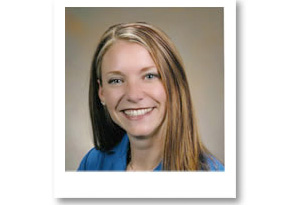
Photo: Bryn-Alan Photography
Megan Allen learned the importance of education, school and teachers from a boy named Daniel.
Daniel was a very shy, fourth-grade boy who, over the course of the school year, had gone from a child with very low self-esteem to a student who blossomed into a writer that Megan could only describe as "poetic."
"One day, toward the end of the school year, Daniel shuffled up to me after school and said: 'Ms. Allen, I have something special for you. It's one of my favorite things,'" she recalls.
Knowing that Daniel didn't have many material possessions, Megan gently tried to decline the offer, saying that it meant so much that he even thought to give her something. "I will forever keep the memory of your kindness," she told him.
But Daniel refused. He reached out one closed fist, slowly opening it, to unveil...a rock. "Ms. A.," he said, "I was thinking. School is my rock. I know I can always hold onto it, that it's always there for me."
That's when Megan realized the power and importance of education, school and teachers. "Straight from the mouth of a child, the truth hit me like a ton of bricks," she says. "School is the rock in this child's life. His life is full of changes and instability, but school is one place he knows he can count on. School is the rock in many of our students' lives—it is their stability, their home away from home, their safe place."
Since that moment, Megan has always remembered that teachers are there to be the rocks for their students, to be the stable forces in many of their lives.
"In return," Megan says, "our students are our rocks, reminding us of the importance of education."
Daniel was a very shy, fourth-grade boy who, over the course of the school year, had gone from a child with very low self-esteem to a student who blossomed into a writer that Megan could only describe as "poetic."
"One day, toward the end of the school year, Daniel shuffled up to me after school and said: 'Ms. Allen, I have something special for you. It's one of my favorite things,'" she recalls.
Knowing that Daniel didn't have many material possessions, Megan gently tried to decline the offer, saying that it meant so much that he even thought to give her something. "I will forever keep the memory of your kindness," she told him.
But Daniel refused. He reached out one closed fist, slowly opening it, to unveil...a rock. "Ms. A.," he said, "I was thinking. School is my rock. I know I can always hold onto it, that it's always there for me."
That's when Megan realized the power and importance of education, school and teachers. "Straight from the mouth of a child, the truth hit me like a ton of bricks," she says. "School is the rock in this child's life. His life is full of changes and instability, but school is one place he knows he can count on. School is the rock in many of our students' lives—it is their stability, their home away from home, their safe place."
Since that moment, Megan has always remembered that teachers are there to be the rocks for their students, to be the stable forces in many of their lives.
"In return," Megan says, "our students are our rocks, reminding us of the importance of education."
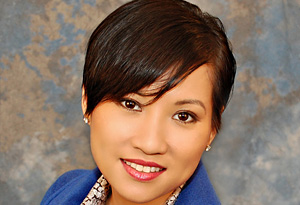
Photo: David and Rhonda Wilson/Fountain City Portraits
As a Vietnam War refugee, Yung Kincer knows firsthand what it's like to experience a life of seemingly insurmountable struggles.
"The story of how I came over to the United States is one that might have come from the movies," she says. The day that Yung's mother found out that South Vietnam lost the war, she tried to escape their village with Yung and her infant brother in tow. Instead, mother and daughter were separated. "I was a scared little girl standing there in the crowd clutching a transistor radio and led by relatives to an awaiting boat crowded with people desperate to flee to freedom."
In the United States, Yung lived with relatives who did not believe in showing affection or encouragement. Her saving grace, she says, was school.
"I will always honor and cherish my teachers, who all loved me and provided me the emotional support that I did not get at home."
Now, Yung says her greatest contribution to education is her life story. "I have had to overcome tremendous struggles, and it took me a long time to achieve success," she says. "I want my students to see that they can rise above whatever it is that is holding them down and accomplish whatever goals they set for themselves."
What's more, Yung's experience has taught her that the oppression of a person begins with the lack of education and that education is the key to self-empowerment. "Too many students think that going to school is just a way to get a job," she says. "It's about much more than that. [Education] frees one from being a follower to becoming a self-led person. If you can think for yourself, you won't allow others to think for you."
"The story of how I came over to the United States is one that might have come from the movies," she says. The day that Yung's mother found out that South Vietnam lost the war, she tried to escape their village with Yung and her infant brother in tow. Instead, mother and daughter were separated. "I was a scared little girl standing there in the crowd clutching a transistor radio and led by relatives to an awaiting boat crowded with people desperate to flee to freedom."
In the United States, Yung lived with relatives who did not believe in showing affection or encouragement. Her saving grace, she says, was school.
"I will always honor and cherish my teachers, who all loved me and provided me the emotional support that I did not get at home."
Now, Yung says her greatest contribution to education is her life story. "I have had to overcome tremendous struggles, and it took me a long time to achieve success," she says. "I want my students to see that they can rise above whatever it is that is holding them down and accomplish whatever goals they set for themselves."
What's more, Yung's experience has taught her that the oppression of a person begins with the lack of education and that education is the key to self-empowerment. "Too many students think that going to school is just a way to get a job," she says. "It's about much more than that. [Education] frees one from being a follower to becoming a self-led person. If you can think for yourself, you won't allow others to think for you."
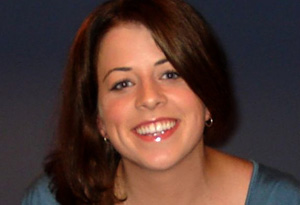
Photo: Meredith Rice
One month before her first year of teaching began, Stephanie Day sat in a workshop during a summer school teaching session and had an argument with her instructor.
"When asked about priorities, I told her that the most important thing for a teacher is that you care about your students. The instructor told me that I was wrong and that caring about your students was only apparent by being the best instructor, with the most diverse teaching tools and strongest lessons you can possibly create," Stephanie says. "I see now what she meant."
Stephanie believes this means that teachers must hold their students and themselves to high standards, especially when it comes to teacher accountability and evaluation.
"I challenge educators to no longer fear these performance tests, but embrace them. There is no reason to fear, because we know that when we do our jobs, our kids have no limits to their potential," Stephanie says. "As excuses and the pressures of what we cannot control enter our minds, we push back and realize what we can control. The time is now for us to be more, because the stakes are just too great and the needs are too important in our country."
"When asked about priorities, I told her that the most important thing for a teacher is that you care about your students. The instructor told me that I was wrong and that caring about your students was only apparent by being the best instructor, with the most diverse teaching tools and strongest lessons you can possibly create," Stephanie says. "I see now what she meant."
Stephanie believes this means that teachers must hold their students and themselves to high standards, especially when it comes to teacher accountability and evaluation.
"I challenge educators to no longer fear these performance tests, but embrace them. There is no reason to fear, because we know that when we do our jobs, our kids have no limits to their potential," Stephanie says. "As excuses and the pressures of what we cannot control enter our minds, we push back and realize what we can control. The time is now for us to be more, because the stakes are just too great and the needs are too important in our country."
"Ask students what they think, what they want to learn, what they are doing and what they care about. It sounds so simple, but it can take persistence and patience to convince them you are truly interested and to get answers that will reveal the potential and brilliance that is within each and every child."
— Mary Eldredge-Sandbo, North Dakota Teacher of the Year
"In 2022, it is my kindergarteners who will be running the world. My message is this: Let's work together to create a future for them that is so bright and beautiful and worthy of the amazing children that they are."
— Kristi Luetjen, Connecticut Teacher of the Year
"Learning requires courage, persistence and empathy. Courage, because it can be frightening to see the world in new ways. Persistence, because challenging our brain takes time and effort. And finally, empathy, because the people filling the pages of history books are like you and me."
— Maryann Woods-Murphy, New Jersey Teacher of the Year
"Strive not to be the best in the world, but rather the best for the world."
— Eric Nash, New Hampshire Teacher of the Year
"I greet my second-graders each morning outside my classroom door with a smile, a welcoming greeting and a handshake, fist bump or high five. It is this type of personal connection that has the greatest impact on student motivation. In other words, relationships matter."
— Kevin Grover, Maine Teacher of the Year
"Practice makes permanent: Success begins with the habits, skills and behaviors we develop, and what we practice becomes permanent, not necessarily perfect."
— Susan Morris, Department of Defense Teacher of the Year
"When students trust in their teacher, they are willing to push themselves in all academic areas. It is just as important to help students build relationships with each other. I have seen students who were far underachieving their peers, and when they found a friend, their academic performance skyrocketed!"
— Donna DuBois, Oregon Teacher of the Year
— Mary Eldredge-Sandbo, North Dakota Teacher of the Year
"In 2022, it is my kindergarteners who will be running the world. My message is this: Let's work together to create a future for them that is so bright and beautiful and worthy of the amazing children that they are."
— Kristi Luetjen, Connecticut Teacher of the Year
"Learning requires courage, persistence and empathy. Courage, because it can be frightening to see the world in new ways. Persistence, because challenging our brain takes time and effort. And finally, empathy, because the people filling the pages of history books are like you and me."
— Maryann Woods-Murphy, New Jersey Teacher of the Year
"Strive not to be the best in the world, but rather the best for the world."
— Eric Nash, New Hampshire Teacher of the Year
"I greet my second-graders each morning outside my classroom door with a smile, a welcoming greeting and a handshake, fist bump or high five. It is this type of personal connection that has the greatest impact on student motivation. In other words, relationships matter."
— Kevin Grover, Maine Teacher of the Year
"Practice makes permanent: Success begins with the habits, skills and behaviors we develop, and what we practice becomes permanent, not necessarily perfect."
— Susan Morris, Department of Defense Teacher of the Year
"When students trust in their teacher, they are willing to push themselves in all academic areas. It is just as important to help students build relationships with each other. I have seen students who were far underachieving their peers, and when they found a friend, their academic performance skyrocketed!"
— Donna DuBois, Oregon Teacher of the Year



